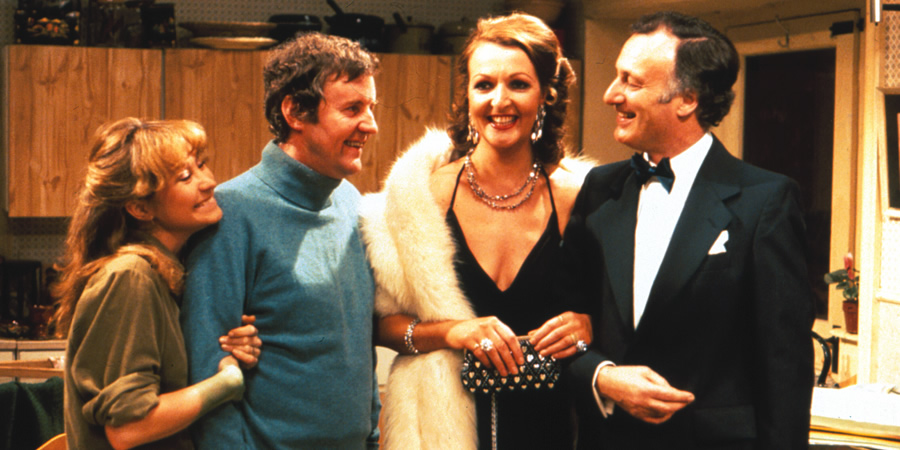It doesn't have to be intentional to be there, it is there as a minor thread all the way through it, it is not its primary function, it may be subliminal, it can easily be missed or dismissed by the show's creator, but here, as a result of the constant failures of the Goods and their victories coming only with the help of the Leadbetters, it became a factor. It just did. It is a natural, inevitable, logical consequence.
Fictions take on an independent life of their own, one of the reasons why writing them can be so fiendishly difficult. I can assure you there is more to Larbey & Esmonde's sitcom than they may want to suggest.
I'll give you a quick and crude example, Aaron, you write a sitcom that has Chavs living in a posh street (having won the lottery) next door to old school poshos and in every episode the chavs end up getting one over on their stuck up neighbours, then like it or not, deny it or not, you have created within that sitcom a thread or aura of promoting or celebrating the lifestyle of the chavs over and above the toffs. It will be pro chav, anti posh. It just will be. It exists as a natural result of your episode endings favouring them (This is why what I said exists in The Good Life does indeed exist).
You cannot then take this element out or deny it is there, you may not want to have people focus on it or be thought of as intending this social or cultural judgment, but you have indeed benefited greatly from it, even if you don't know it or understand it. It is a major part of fiction, especially visual fiction, and it is the Godsend for commercial writers and makers who exploit it all the time.
Actions constantly in favour of one party over another make statements, it is just so.

